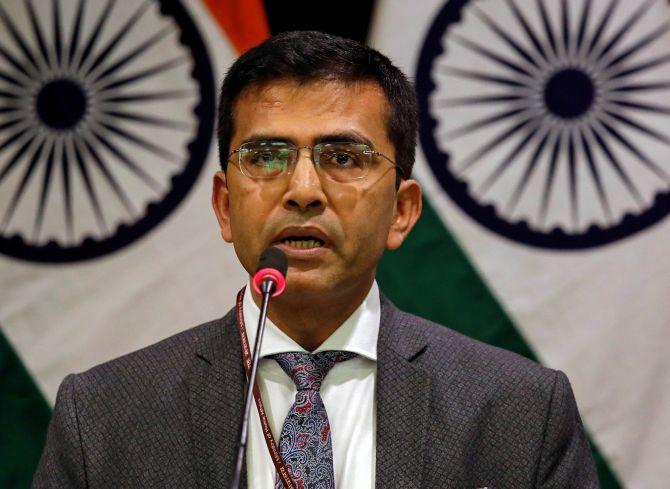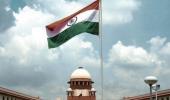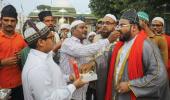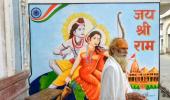
India hit out at Pakistan on Saturday for objecting to the timing of the Ayodhya verdict, saying Islamabad's 'pathological compulsion' to comment on its internal affairs with the obvious intent of spreading hatred is condemnable.
Pakistan Foreign Minister Shah Mahmood Qureshi objected to the timing of the Ayodhya verdict, which coincides with the inauguration of the Kartarpur corridor, saying he was "deeply saddened" at the "insensitivity" shown at such a joyous occasion.
"We reject the unwarranted and gratuitous comments made by Pakistan on the judgement of the Supreme Court of India on a civil matter that is completely internal to India," Ministry of External Affairs Spokesperson Raveesh Kumar said.
"It pertains to the rule of law and equal respect for all faiths, concepts that are not part of their ethos. So, while Pakistan's lack of comprehension is not surprising, their pathological compulsion to comment on our internal affairs with the obvious intent of spreading hatred is condemnable," he said.
Meanwhile, top envoys of several countries, including Russia, France and Iran, were briefed by senior officials of the Ministry of External Affairs on the Supreme Court's verdict, sources said.
The envoys briefed were from various parts of the world ranging from Southeast Asia, South America, Africa, Europe and the Gulf, sources said.
The envoys were given a heads up on the facts surrounding the judgment and the historical background behind it, they said.
Following the verdict, top ministry officials briefed top diplomats from several missions, sources said.
Some envoys of key strategic countries and India's close allies were briefed by Foreign Secretary Vijay Gokhale one-on-one, they said.
"Although it is definitely an internal issue of India, we are very appreciative of the line of communication that the MEA is having with all of the diplomatic corp by giving us a heads up, informing us, and fully explaining the historical background behind this decision," Dean of Diplomatic Corps and Dominican Republic Ambassador Hans Dannenberg Castellanos said.
In August, India had briefed the envoys of five permanent members of the United Nations Security Council and several other nations about its decision to scrap Article 370 provisions, which gave special status to Jammu and Kashmir, and bifurcate the state.










